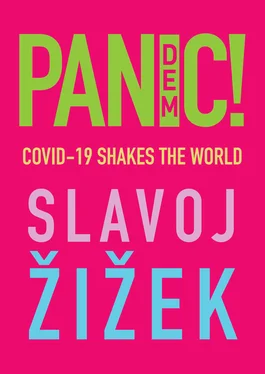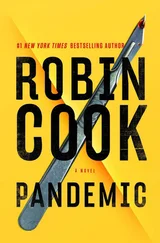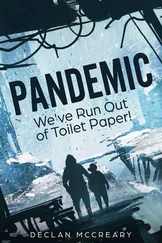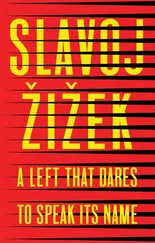This distrust is just the culmination of the same stance displayed by the Chinese authorities when they are dealing with reactions to ecological protests or problems with workers’ health. Chinese authorities ever more often resort to a particular procedure: a person (an ecological activist, a Marxist student, the chief of Interpol, a religious preacher, a Hong Kong publisher, even a popular movie actress) simply disappears for a couple of weeks before they reappear in public with specific accusations raised against them, and this protracted period of silence delivers the key message: power is exerted in an impenetrable way where nothing has to be proven. Legal reasoning comes in distant second when this basic message is delivered. But the case of disappearing Marxist students is nonetheless specific: while all disappearances concern individuals whose activities can be somehow characterized as a threat to the state, the disappearing Marxist students legitimize their critical activity by a reference to the official ideology itself.
What triggered such a panicky reaction in the Party leadership was, of course, the specter of a network of self-organization emerging through direct horizontal links between groups of students and workers, and based in Marxism, with sympathy in some old party cadres and even parts of the army. Such a network directly undermines the legitimacy of the Party’s rule and denounces it as an imposture. No wonder, then, that, in recent years, the government closed down many “Maoist” websites and prohibited Marxist debate groups at universities. The most dangerous thing to do today in China is to believe seriously in the state’s own official ideology. China is now paying the price for such a stance:
The coronavirus epidemic could spread to about two-thirds of the world’s population if it cannot be controlled,” according to Hong Kong’s leading public health epidemiologist Gabriel Leung. “People needed to have faith and trust in their government while the uncertainties of the new outbreak were worked out by the scientific community,” he said, “and of course when you have social media and fake news and real news all mixed in there and then zero trust, how do you fight that epidemic? You need extra trust, an extra sense of solidarity, an extra sense of goodwill, all of which have been completely used up. 2
There should be more than one voice in a healthy society, said doctor Li from his hospital bed just prior to his death, but this urgent need for other voices to be heard does not necessarily mean Western-style multiparty democracy, it just demands an open space for citizens’ critical reactions to circulate. The chief argument against the idea that the state has to control rumors to prevent panic is that this control itself spreads distrust and thus creates even more conspiracy theories. Only a mutual trust between ordinary people and the state can prevent this from happening.
A strong state is needed in times of epidemics since large-scale measures like quarantines have to be performed with military discipline. China was able to quarantine tens of millions of people. It seems unlikely that, faced with the same scale of epidemic, the United States will be able to enforce the same measures. It’s not hard to imagine that large bands of libertarians, bearing arms and suspecting that the quarantine was a state conspiracy, would attempt to fight their way out. So would it have been possible to prevent the outbreak with more freedom of speech, or has China been forced to sacrifice civil liberties in the province of Hubei in order to save the world? In some sense, both alternatives are true. And what makes things even worse is that there is no easy way to separate the “good” freedom of speech from the “bad” rumors. When critical voices complain that “the truth will always be treated as a rumor” by the Chinese authorities, one should add that the official media and the vast domain of digital news are already full of rumors.
A blistering example of this was provided by one of the main Russian national television networks, Channel One, which launched a regular slot devoted to coronavirus conspiracy theories on its main evening news programme, Vremya (“Time”). The style of the reporting is ambiguous, appearing to debunk the theories while leaving viewers with the impression that they contain a kernel of truth. The central message, that shadowy Western elites, and especially the US, are somehow ultimately to blame for the coronavirus epidemic is thus propagated as a doubtful rumor: it’s too crazy to be true, but nonetheless, who knows … ? 3The suspension of actual truth strangely doesn’t annihilate its symbolic efficiency. Plus, we must recognize that, sometimes, not telling the entire truth to the public can effectively prevent a wave of panic that could lead to more victims. At this level, the problem cannot be solved—the only way out is the mutual trust between the people and the state apparatuses, and this is what is sorely missing in China.
As the world-wide epidemic develops, we need to be aware that market mechanisms will not be enough to prevent chaos and hunger. Measures that appear to most of us today as “Communist” will have to be considered on a global level: coordination of production and distribution will have to take place outside the coordinates of the market. One should recall here the Irish potato famine in the 1840s that devastated Ireland, with millions dead or compelled to emigrate. The British state retained their trust in market mechanisms, exporting food from Ireland even when vast numbers were suffering. We must hope that a similar brutal solution is no longer acceptable today.
One can read the ongoing coronavirus epidemic as an inverted version of H. G. Wells’s The War of the Worlds (1897). This is the story of how after Martians conquer the earth, the desperate hero-narrator discovers that all of them have been killed by an onslaught of earthly pathogens to which they had no immunity: “slain, after all man’s devices had failed, by the humblest things that God, in his wisdom, has put upon this earth.” It is interesting to note that, according to Wells, the plot arose from a discussion with his brother Frank about the catastrophic effect of the British on indigenous Tasmanians. What would happen, he wondered, if Martians did to Britain what the British had done to the Tasmanians? The Tasmanians, however, lacked the lethal pathogens to defeat their invaders. 4Perhaps an epidemic which threatens to decimate humanity should be treated as Wells’s story turned around: the “Martian invaders” ruthlessly exploiting and destroying life on earth are we, humanity, ourselves; and after all devices of highly developed primates to defend themselves from us have failed, we are now threatened “by the humblest things that God, in his wisdom, has put upon this earth,” stupid viruses which just blindly reproduce themselves—and mutate.
We should of course analyze in detail the social conditions which made the coronavirus epidemic possible. Just think about the way, in today’s interconnected world, a British person meets someone in Singapore, returns to England, and then goes skiing to France, infecting there four others … The usual suspects are waiting in line to be questioned: globalization, the capitalist market, the transience of the rich. However, we should resist the temptation to treat the ongoing epidemic as something that has a deeper meaning: the cruel but just punishment of humanity for the ruthless exploitation of other forms of life on earth. If we search for such a hidden message, we remain premodern: we treat our universe as a partner in communication. Even if our very survival is threatened, there is something reassuring in the fact that we are punished, the universe (or even Somebody-out-there) is engaging with us. We matter in some profound way. The really difficult thing to accept is the fact that the ongoing epidemic is a result of natural contingency at its purest, that it just happened and hides no deeper meaning. In the larger order of things, we are just a species with no special importance.
Читать дальше












